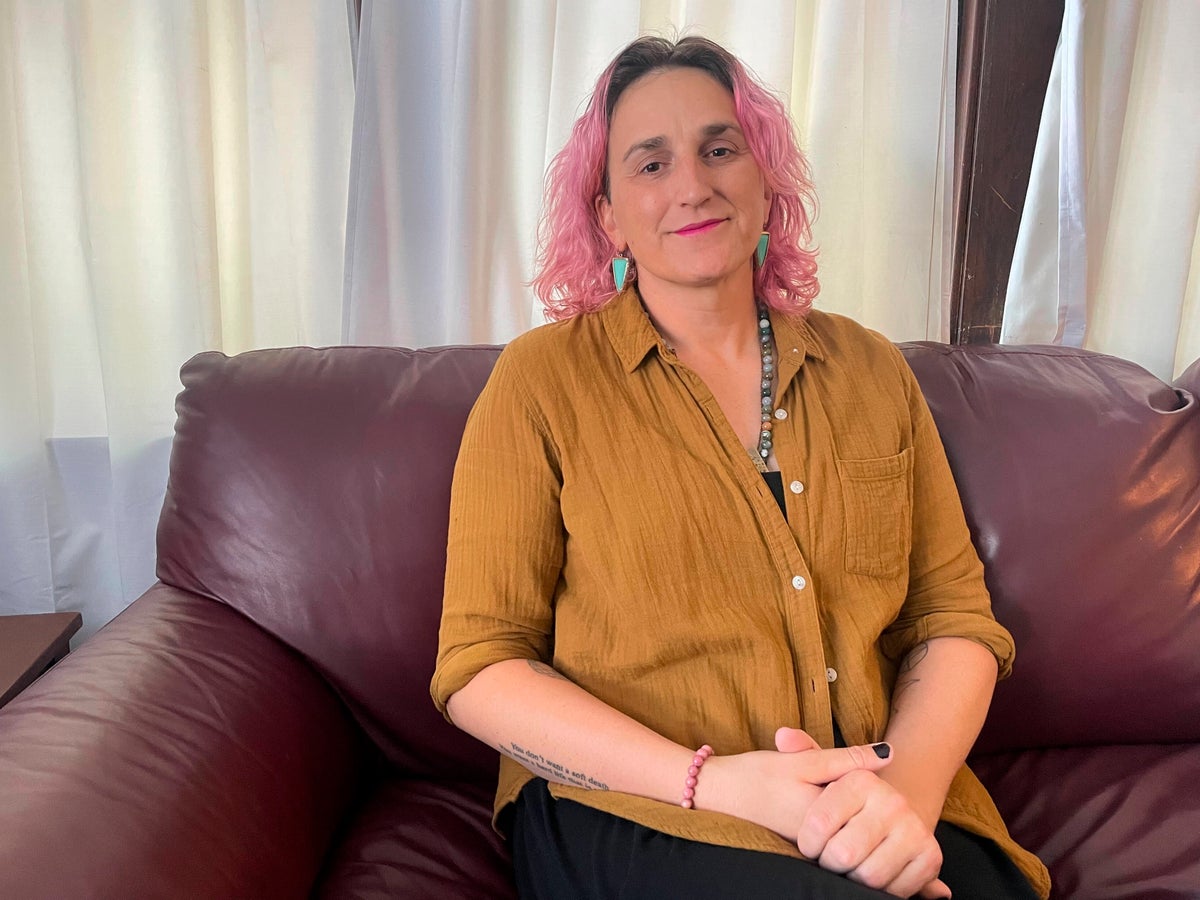
Minnesota convenes its most diverse Legislature to-date in January, with some of its newest members saying they plan to use their history-making elections to pass policies to protect the minority communities they represent.
Solidifying transgender rights, banning “conversion therapy,” safeguarding abortion access and legalizing marijuana are among the goals shared by some of the newly elected lawmakers and seasoned legislators who have been working for years on issues important to underrepresented communities. Now, they feel there is momentum to push the issues forward.
“It’s really going to change the dynamics of what people expect lawmakers to look like, the way they expect lawmakers to act, and the kind of issues we push to the forefront,” newcomer Leigh Finke, the first transgender person elected to the state's Legislature, said of her diverse incoming class.
When 201 legislative members convene in January, there will be 35 lawmakers of color. Twelve lawmakers, all Democrats, are part of the LGBTQ community. And for the first time, Black women will be represented in Minnesota’s Senate — there will be three of them.
Five lawmakers of color are Republicans. Walter Hudson, who is Black and newly elected to the House, said it’s important to remember there is “diversity within diversity” and that all people of color do not have the same priorities or values. He said he's looking forward to elevating voices of conservative people of color.
Still, with Democrats in control of both legislative chambers as well as the governor's office for the first time in eight years, many believe their “trifecta” will allow them to pass proposals that have been unsuccessful in the past.
Among them is a ban on conversion therapy, a top priority for returning Sen. Scott Dibble, who has represented the LGBTQ community by himself in the state's Senate for many years.
Banning the scientifically discredited practice of using therapy to “convert” people in the LGBTQ community to heterosexuality or traditional gender expectations is among a handful of policies that Dibble said is “sitting in the queue of passage" after being blocked by Senate Republicans for years.
Safeguarding abortion access also has "vast implications” for the LGBTQ community, Dibble said. “We get to decide for ourselves what we do with our bodies and what our core values are,” without the overreach of government — and that makes the abortion issue important to discussions on transgender rights and the right to receive gender-affirming care, he said.
Abortion access is additionally a major economic issue for people of color, gender-expansive people and immigrants, said newcomer Alicia Kozlowski — who is Mexican, Ojibwe and the first nonbinary person elected to the state's Legislature.
Legalizing recreational marijuana is also at the forefront, as hundreds of thousands of Black and Hispanic Americans have been disproportionately burdened by convictions for marijuana-related offenses. Returning Rep. Athena Hollins, who is Black and part of the LGBTQ community, said her goal is not just to legalize weed.
“It's also about bringing justice to communities that have been impacted, so it won't be held over people's heads if they have prior convictions of this — and also so they can potentially participate in a new legal market that's going to be very lucrative," she said.
Allowing people to get driver’s licenses without proof of legal immigration status is a top priority for Zaynab Mohamed, a 25-year-old Black woman who immigrated from Somalia when she was 9 and became the youngest person ever elected to the state's Senate.
“Our current policy denies driver’s licenses to undocumented immigrants, which makes life harder for them and deprives our state of the economic potential offered by immigrant families,” Mohamed said.
Some new and returning lawmakers also said they want to ban no-knock warrants — like the one that led to the Minneapolis SWAT team officer's fatal shooting of Amir Locke, a 22-year-old Black man.
Returning Rep. Melissa Hortman, who will lead Democrats as House Speaker in the new session, agreed that paid family and medical leave is among the party’s biggest priorities, along with codifying abortion access in state law and investing more in public education.
Newcomer Samantha Sencer-Mura, the first Japanese American ever elected to the Legislature, wants to start an ethnic studies curriculum in schools, aiming to provide all students in Minnesota with the opportunity to learn a more complete telling of history, and to enable students of color to see themselves reflected more in curriculum.
Both her grandparents were behind bars during Japanese interment in the United States, but "that’s not a piece of history that is commonly taught," she said.
“When we see things like Donald Trump in 2016 talking about the Muslim ban, and in many ways wanting to repeat a really dark moment of U.S. history, I think that can be directly correlated with not having an honest and accurate understanding of American history,” she added.
As for Minnesota Republicans, Hudson campaigned on promises to ban “the practice of critical race theory in public education,” oppose “the sexualization of students via comprehensive sex ed," and abolish abortion.
And returning Rep. Lisa Demuth made history in November when Republicans elected her as the first Black woman to lead the party as House Minority Leader in the new session.
Demuth said she specifically told her caucus not to vote for her because of her racial or gender identity — and only to vote for her if they think she would lead effectively.
“I'm a Black woman, but that’s not all of me. That is not the only thing I bring to the table," she said. “I think if we can start acknowledging diversity, but not making that the only focus, we will be better off. Because I think when we make that the only focus, we further divide ourselves.”







